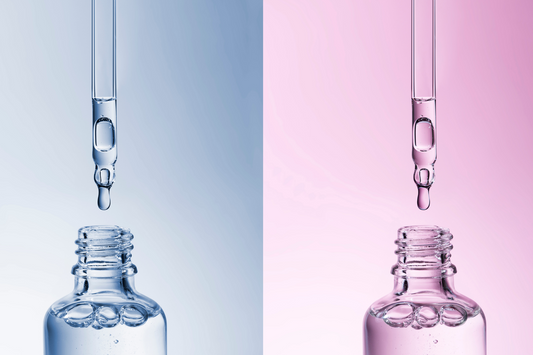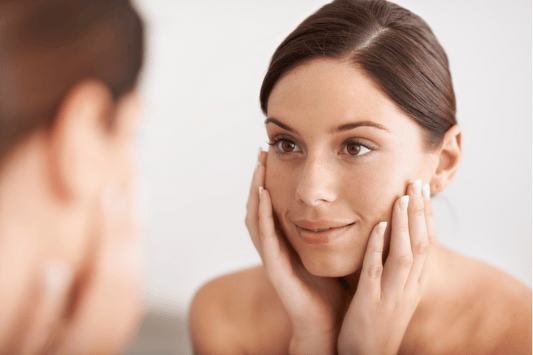Hair care no longer involves just shampoo and conditioner. There are hundreds of tips and tricks that get passed along from family, friends, and of course, the internet.
But what actually works? We want to bust the 5 biggest hair care myths we found
1. Cutting your hair makes it grow faster.
The rate at which your hair grows is determined by the anagen phase of the hair growth cycle. The length of this phase lasts anywhere from 2 to 7 years. Some factors that impact this include age, sex, nutrition, hormones — but not how often you cut your hair.
As you grow your hair out it becomes more prone to breaking, therefore cutting away split ends helps maintain the strength of your hair — not the rate of growth.
2. Taking a cold shower gives you shiny hair.
Recently, TikTok tried to convince us that taking a cold shower will help with shinier hair.
Each individual strand of hair is protected by the cuticle. When you wash your hair, water interacts with the cuticle and causes it to open just slightly. The absorption period of water into the cuticle is very short, so the temperature of the water doesn’t affect this process. Trichologist Anabel Kingsley noted that “once the hair has grown past the scalp, it is technically dead tissue- it neither contains blood vessels or nerves”. Your scalp, on the other hand, does have important blood vessels that carry nutrients to your hair follicles. Cold showers could potentially slow down this blood flow and therefore have the opposite effect when trying to create shiny, longer hair.
The minimal temperature change from a hot versus cold shower doesn’t have the ability to make noticeable changes to your hair. Also, trying to evaluate how “shiny” your hair looks in general is quite difficult and subjective. We are not convinced of this myth.
3. Taking prenatal vitamins helps your hair grow faster.
One popular myth is that prenatal vitamins contribute to growing thicker, fuller hair.
Prenatal vitamins are created to make sure that expectant mothers receive enough vitamins and minerals for the major change their body is going through. Most prenatal vitamins include calcium, folic acid, and iron. While these nutrients may be associated with stronger hair and bones, the amount that is in a vitamin has not been proven to actually increase hair growth.
This misconception probably comes from the fact that pregnant women tend to experience a longer hair growth phase due to the increase of estrogen. Taking prenatal vitamins if you’re not pregnant isn’t going to harm you, however, it won’t make your hair grow.
4. Lathering is what makes your hair clean.
While many people associate a good foamy lather with cleanliness, the two have no exclusive connection. What causes that lather is actually sulfates. While sulfates do act as an effective cleansing agent, they also have the potential to dry out hair and skin for those with sensitivity issues.
Okay, so why lather? Having a foaming quality means that more of the product can be spread around the scalp and therefore less needs to be used. People have been cleaning and washing their hair for centuries without lathering properties.
Natural, sulfate-free shampoos still clean your hair, however, they take longer to create suds and might use more water to rinse out.
5. Brushing frequently makes your hair shinier.
The classic wives tale: “100 brush strokes a day for shiny, lustrous hair.”
Yes, brushing is good for your hair. The benefits of oil distribution, detangling and removing shedding hairs are definitely still there- but you can see those benefits within a couple of strokes.
In fact, brushing too much may stimulate your oil glands, producing sebum and making your hair more greasy. Brushing too much also creates unnecessary friction and puts your hair at risk for breakage. Definitely keep up the brushing, but a handful of gentle strokes a day will keep the frizz at bay.





